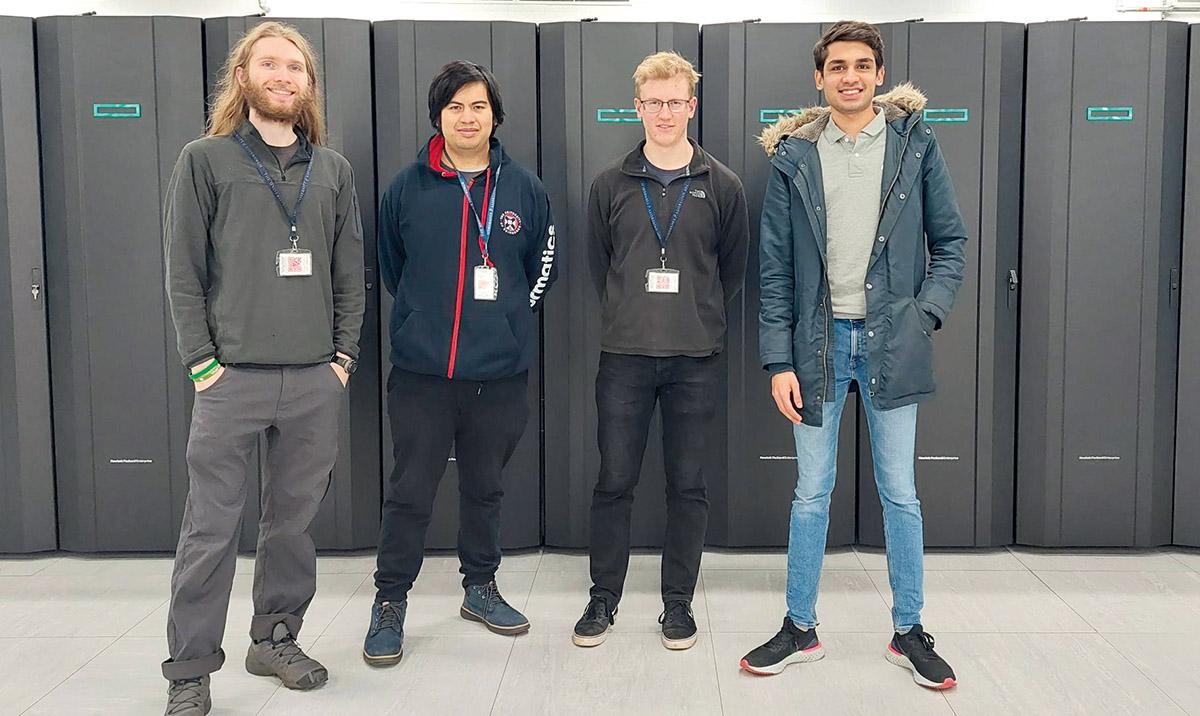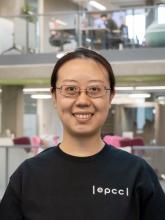ISC 2022 Student Cluster Competition
20 May 2022
We are TeamEPCC, a team of four MSc students from EPCC who will participate in the ISC22 on-site Student Cluster Competition (SCC) in Hamburg, Germany in June. The ISC22 SCC includes both the digital competition and the on-site competition. The competition will form the basis of each team member’s MSc dissertation project.

TeamEPCC was one of the five student teams selected to compete on-site this year – we will run a list of benchmarks and scientific applications on our own cluster with the aim of delivering the highest performance within the limit of 3 kilowatts of power. We look forward to the competition challenges and meeting the academic and industrial experts in the HPC world as well as the other SCC teams at the ISC22.
In preparation for the competition, our self-designed cluster has been set up with the support of the EPCC system team. The announced benchmarks and applications for the ISC22 on-site SCC include HPCC, HPCG, HPL, ICON, Xcompact3D and NWChem. Due to the nature of the applications and benchmarks, we chose a GPU-based cluster consisting of two nodes with each node containing eight NVIDIA A100 GPUs, two AMD 7713 64-core CPUs, and 1TB RAM. A node is based on the HPE XL675d Gen10 product server. It uses the HPE Apollo d6500 Gen10 chassis and is cooled by fifteen 80mm fans.
We have tried to port, run and optimise all the codes with various configurations in order to find those which perform the best on our cluster. Of particular concern is the power limitation; the cluster has the potential to run at well over the 3 kilowatt limit, so an important task for many applications is to discover the optimal way to reduce the cluster’s power consumption below this limit while still achieving the best performance.
As a part of our preparations for the competition, our team visited EPCC’s Advanced Computing Facility (ACF), where several UK national HPC systems, such as ARCHER2, Cirrus, and Tesseract, are located. Our own designed cluster is also in the ACF.
During our training visit there we tried to learn how to perform basic maintenance on the hardware as well as seeing how its constituent components fit together and, importantly, were cooled. In addition we had the chance to see the ARCHER2 and Cirrus supercomputers, both of which had been used extensively by all team members as part of the High Performance Computing/with Data Science MSc. Overall, it was a very enlightening and enjoyable experience.
We would like to thank HPE for being our team’s sponsor.
Read more about this year’s Student Cluster Competition at ISC:
isc-hpc.com/student-cluster-competition.html

